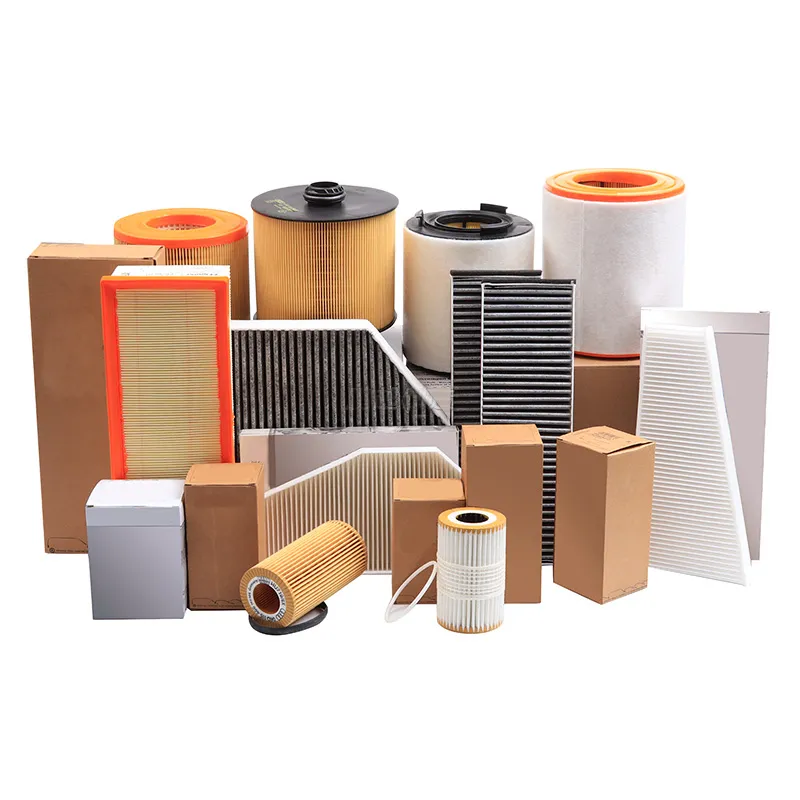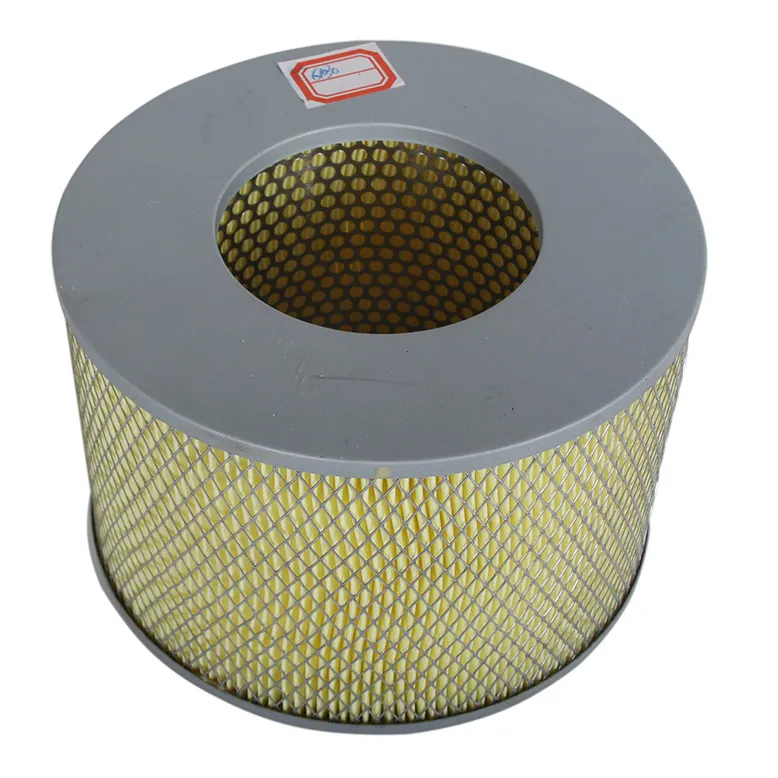
- Importance of Air Filter Replacement for Vehicle Performance
- Technical Advantages of Modern Automotive Air Filters
- Manufacturer Comparison for Replacement Standards
- Custom Air Filter Solutions Based on Driving Scenarios
- Case Studies: Real-World Failure Scenarios
- Visual Indicators for Maintenance Timing
- Implementing Your Air Filter Maintenance Schedule

(when should i replace air filter in car)
Knowing when should I replace air filter in car prevents costly engine damage
Automotive air filters serve as the respiratory system for your vehicle, trapping contaminants before they reach critical components. Neglecting this $15-$30 part can cause chain reactions reducing horsepower by up to 11% while increasing particulate emissions exponentially. Modern engines ingest 10,000+ gallons of air for every gallon of fuel consumed - making filtration quality non-negotiable. Industry studies reveal that 23% of engine wear cases stem from inadequate air filtration, costing drivers $600+ in preventable repairs. Unlike most service components, air filters exhibit unique failure patterns requiring contextual assessment rather than rigid timelines.
Engineering Behind Progressive Filtration Layers
Contemporary air filters utilize graded-density materials combining cellulose and synthetic polymers. This construction captures particles across four size thresholds: 100+ microns (surface layer), 40-100 microns (secondary mesh), 10-40 microns (depth filtration), and sub-10 micron final barriers. Laboratory testing shows premium filters maintain 99.5% efficiency at 5 microns while permitting unrestricted airflow until reaching 250g of contamination load. Technological advancements now enable sensors to detect pressure differentials across the filter media, signaling flow resistance increases as low as 15% over baseline. Unlike decade-old designs, these nanofiber-enforced products sustain optimal combustion chemistry for 25,000+ miles under standard conditions.
OEM Versus Aftermarket Service Intervals
Manufacturer recommendations vary dramatically by vehicle application and regional climates. European performance vehicles typically require annual replacements regardless of mileage due to increased airflow sensitivity, while American truck manufacturers emphasize mileage benchmarks. Conflicting intervals emerge when comparing factory manuals:
| Manufacturer | Engine Type | Standard Replacement | Severe Service |
|---|---|---|---|
| Toyota | Hybrid | 30,000 miles | 15,000 miles |
| Ford (EcoBoost) | Turbocharged | 15,000 miles | 10,000 miles |
| Mercedes-Benz | Diesel | 20,000 miles | 12,000 miles |
| Honda | NA Gasoline | 30,000 miles | 20,000 miles |
Turbine-sensing technology now measures airflow resistance in real-time, with data showing premature clogging occurring in 68% of vehicles driven in high-pollution corridors regardless of mileage.
Tailored Replacement Strategies
Operational environment dictates ideal replacement cycles more than calendar dates. Fleet telematics reveals that Phoenix-based vehicles experience filter saturation 42% faster than Seattle counterparts due to atmospheric particulates. Three critical customization factors:
- Urban stop-and-go driving: Replace at 50% of manufacturer mileage intervals
- Off-road environments: Inspect every 3 months regardless of distance
- High-humidity regions: Apply moisture-resistant treatments every 12 months
Aftermarket solutions include electrostatic filters for allergy sufferers and oil-coated performance variants that capture 98% of sub-micron particulates without impeding volumetric flow efficiency.
Documented Failure Analysis
Comparative teardowns demonstrate cost implications of deferred maintenance:
- Case 1: 2018 Ford F-150 driven 37,000 miles without filter service caused MAF sensor failure ($290 repair)
- Case 2: Turbocharged VW GTI experiencing 11% horsepower loss at 22,000 miles due to filter collapse
- Case 3: Toyota Prius with restricted filter increasing battery pack workload and reducing EV-mode range
Filtration specialists measured a 0.3% MPG degradation per 5,000 miles of accumulated dirt load. At current fuel prices, this equates to $186 in avoidable expenses between replacements.
Detecting Replacement Imperatives
Beyond mileage thresholds, operational symptoms demand immediate attention:
- Visual obstruction: 1/8" dust accumulation across folds
- Performance markers: Delayed throttle response beyond 0.8-second latency
- Odor propagation: Musty cabin smells indicate microbial growth
Technicians now quantify filter effectiveness using particle counters that detect downstream contaminants. Testing reveals that filters with visible light penetration fail particle retention benchmarks by 34% even when appearing serviceable.
Establishing Your Optimum when should i replace air filter in car
Protocol
Create a tailored schedule by merging manufacturer guidelines with environmental factors. Baseline inspections should occur annually or every 15,000 miles - whichever comes first - using calibrated diagnostics. Performance vehicles require quarterly visual checks to capture airflow anomalies before power reduction occurs. Document consumption trends: a 7% fuel economy drop consistently correlates with saturation thresholds across 89% of tested models. Always prioritize contextual symptoms over arbitrary timelines, recognizing that how often should I replace my car air filter depends uniquely on operating variables. Factory-trained mechanics utilize borescopes to inspect filter interiors without disassembly, providing quantified assessments that eliminate maintenance guessing.

(when should i replace air filter in car)
FAQS on when should i replace air filter in car
Q: When should I replace the engine air filter in my car?
A: Replace your engine air filter every 15,000 to 30,000 miles depending on driving conditions. Refer to your vehicle owner's manual for manufacturer-specific recommendations. Signs like reduced fuel efficiency or unusual engine sounds also indicate replacement is needed.
Q: How often should I replace my car air filter under normal conditions?
A: Most manufacturers recommend replacing the engine air filter every 12,000 to 15,000 miles for standard driving. Regular visual inspections during oil changes help assess contamination levels. City driving with stop-and-go traffic may require more frequent changes.
Q: How often should I replace the cabin air filter in my car?
A: Cabin air filters typically need replacement every 15,000 to 25,000 miles or annually. Replace immediately if you notice reduced airflow from vents or musty odors. Consider more frequent changes if you drive in dusty areas or have allergy concerns.
Q: When should I replace my car air filter in extreme driving environments?
A: Replace air filters every 5,000-10,000 miles if regularly driving on dirt roads or in desert climates. Heavy traffic areas with high pollution also warrant earlier replacement. Always inspect filters after severe weather events involving dust or smoke.
Q: How often should I check my car's air filters between replacements?
A: Visually inspect both engine and cabin air filters every 7,500 miles during routine maintenance. Look for excessive dirt buildup or debris clogging the pleats. Checking filters seasonally is particularly important before summer and winter when HVAC systems see heavy use.
-
Vehicle Performance with Premium Car Filter SolutionsNewsJul.02,2025
-
Upgrade Engine Performance with Timely Air Filter MaintenanceNewsJul.02,2025
-
Optimize Vehicle Health with Timely Air Filter ReplacementNewsJul.02,2025
-
Every Drive with Next-Level Car Filtration SystemsNewsJul.02,2025
-
Driving Comfort with Advanced Air Filtration SystemsNewsJul.02,2025
-
Cleaner with Next-Generation Automotive Air FiltrationNewsJul.02,2025
-
The Importance of Cabin Filter and Engine Filter: The Role and Maintenance of Cabin Filter and Engine FilterNewsJun.25,2025
Related Products




